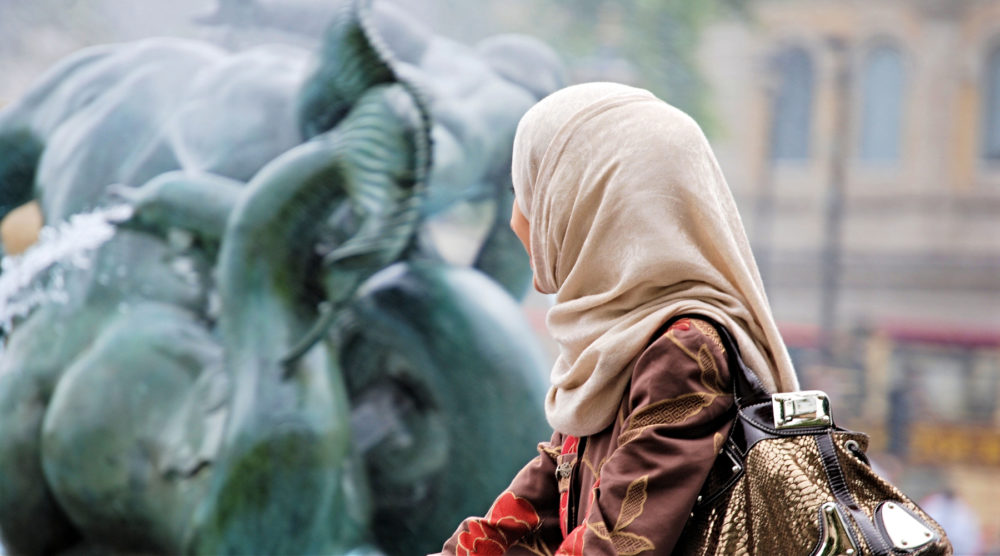There has been a recent wave of academics and activists who define, and are attempting to formalise this definition of, Islamophobia as a particular form of racism.. These academics include David Theo Goldberg; Maleiha Malik; Salman Sayyid and Brian Klug.
In typifying Islamophobia is anti-Muslim racism, one advantage is being able to leverage existing legal protections for racial minorities, and to benefit from the social stigma against racism. To consider Islamophobia as a racism, allows it to access the cultural understanding and work related to anti-racism for the past 50 years. The fact that this understanding is ingratiated in society means that both professionals that would be involved and the public are more able to understand what the kinds of behaviours are that would be considered Islamophobia.
Those that advocate for this make clear that this definition, and its use of the racism framework, specifically targets “Muslim-ness” rather than Islam. Salman Sayyid,Professor of Rhetoric and Decolonial Thought at the University of Leeds, rejects the idea that this definition misses theological disputes because the point of this definition is to illustrate that how Islamophobia is experienced or perpetuated is not about theology, rather it targets expressions of Muslimness or perceived Muslimness. This is why race is important to the definition; because Muslims are being racialised. Sayyid uses the example of the Hijab being ripped of a Muslim women, or a comment that Muslims are breeding too much and need to be sterilised, to show that in the Islamophobia that is most often being pereptuated, there is no references to theological issues, rather it is the use of visual cues and making racialised accusations, akin to classical forms of scientific racism.
The fundamental criticism that has been levelled against this definition is at its most basic; that Islam is not a race, that therefore Islamophobia cannot be a form of racism. This is an accusation that has been used against discussions of Islamophobia even before this explicit tying to racism. For example, in an article that especially provoked controversy, Melanie Phillips reiterates the common sentiment of the right-wing and anti-Islam inellectuals that the term Islamophobia is solely used to delegitimise critiques of Islam.
However, in this most recent form of the debate on Islamophobia, this is a criticism that is being expressed not just by those who consider it the stifling of free speech to critique Islam as an ideology, but also from within Muslim circles, who consider describing Islamophobia as a race problem as an erasure of the Muslim religious identity in favour of identity markers. Caner K. Dagli, writing for the Zaytuna institute, founded by Hamza Yusuf, warns that using the conceptual apparatus of racism “turns Islam into a mere cultural marker of non-white people, a cipher that is spiritually, intellectually, and morally inert.” While Dagli questions why religious bigotry does not add another parameter of discrimination, instead it sits “on the lap of racism instead of having its own seat at the table of intersecting hierarchies”, a larger concern is that Islam, and religion in general, is stripped of its meaning, becoming reduced to a social factor or racial signifier. In this way “Islam becomes no more meaningful than an accent that allows white people to identify non-whites”. In dismissing the essence of belief; it therefore also dismisses the possibility that there could be reason other than that akin to racism that would explain why there would be hostility and antagonism towards Muslims by both individuals and powerful institutions. Anna Sophie Lauwers argues that the idea that defining Islamophobia as a form of racism may also overlook the possibility that islamophobia could also manifest itself as religious bigotry, which is conceptually distinct from racism, and may arise from a different logic. Religious bigotry denies rejects religion based on prejudicial views, religion is seen as a choice, and which individual followers are seen as having the agency to change.
Sources
https://www.islamicdiscourseinitiative.com/reviews/podcast/is-islamophobia-racism/?fbclid=IwAR3-mkD-uWZxqclM2nNPNWbeYBdslqZVfmU_l9uSvd3grzKF6lbMieVsWUE
https://lookaside.fbsbx.com/file/Is%20Islamophobia%20always%20racism%3F.pdf?token=AWwbqflrfLKJG8IKPebaFABuaJtFZztC5v9k9AI9Ox-lnKIli7fXs0sQhxjU0rUNfUSSJviusTj7XxJCy05TZE7VZLS79N9dUlTz1oI639quauM3QGhjoNhDW5yYJpt-pL5YzblSKfEzmSbiJzxzmy_S






